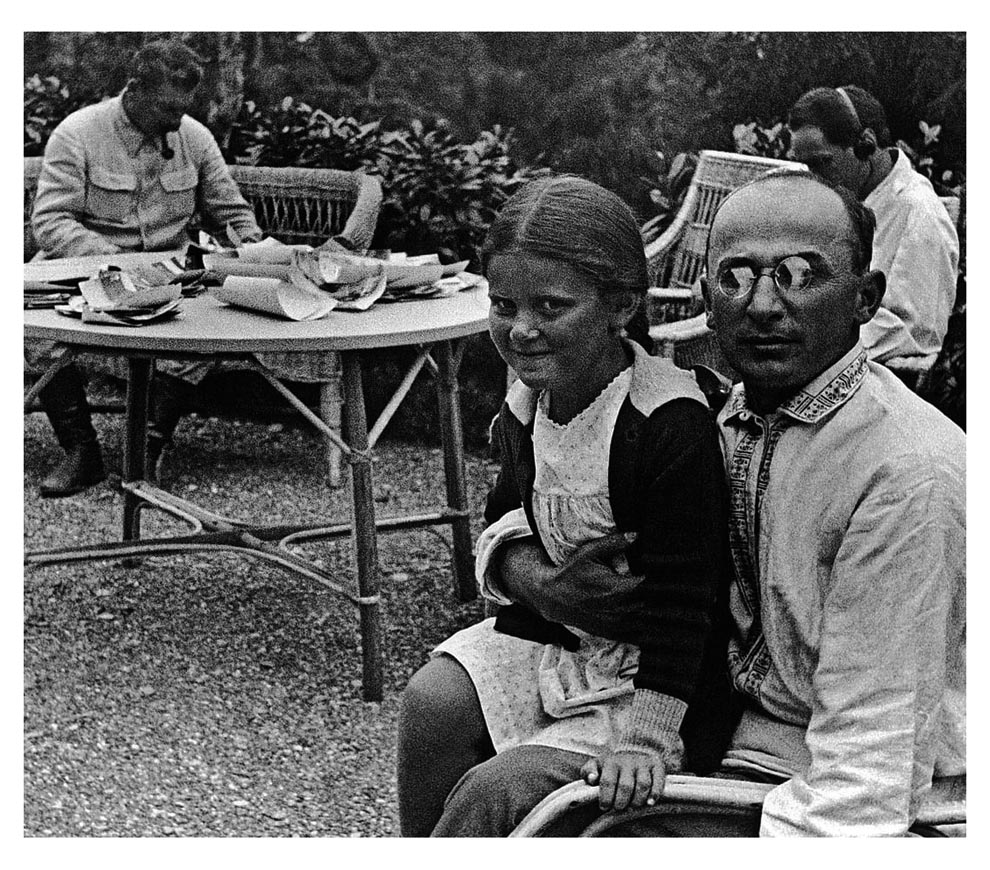
An extraordinary life lived with energy and determination was the life of Svetlana Alliluyeva who was known as Stalin’s daughter. When I finished reading author Rosemary Sullivan’s outstanding book on Svetlana, it occurred to me that Svetlana was caught in the crossfire of history, but managed to live her life.
The butcher, Joseph, was born Josef Vissarionovich Djugashvili December 18, 1878 in the small town of Gori, Georgia, then part of the Russian empire. He was an only child with a poor, abusive, father. When he was in his 30s, he took the name Stalin from the Russian term for “man of steel.” He ruled the Soviet Union by terror, 1922-1952, but turned the Soviet Union from a peasant society into an industrial and military superpower.
Svetlana was born February 28, 1926. When she was six years old her mother, Nadezhda, age 31, shot herself in the head following a public spat with Stalin. Svetlana learned much later of her mother’s suicide when she was told at the time it was due to appendicitis. When Winston Churchill was in Stalin’s private apartment at the Kremlin, he descried her as “a handsome red-haired girl, who kissed her father dutifully.”

Svetlana may have had bodyguards, nannies, governesses, and a privileged life given to the upper reaches of power, but she had a difficult relationship with her father. At age 16 she fell in love with Aleksei Kapler, a Jewish Soviet filmmaker who was 38 years old. Because her father disapproved of this relationship, he sentenced Kapler to five years of exile and then again for five more years in labor camps.
At 17, she was married to a fellow student at Moscow University. A son was born in 1945 and the couple was divorced in 1947. Svetlana was married four times, seemingly searching for a stable home and true love. Her last husband was architect William Peters and they had a daughter, Olga. Along the way Svetlana had many love affairs.
She met Brajesh Singh, an Indian communist from Kalakankar, in 1963 and they fell in love, but were not allowed to marry. Singh died in 1966 and Svetlana was allowed to travel to India to take his ashes to pour into the Ganges River. She lived in India for three months while planning to defect.
Svetlana caused an international furor when she defected to the United States in 1967. She became a naturalized citizen of the United States, as well as having her Soviet citizenship. She returned to the Soviet Union in 1984 where she and Olga again lived for a short time. She had wanted to connect with her two living Russian children, but found to her dismay, that neither wanted to relate to her after so many years when they felt she had abandoned them in her move to the United States.
She had a romantic heart and those who met her described her as pleasant, mannerly, naïve, attractive, and demure. She could be wildly impulsive and lived the life of a nomad after coming to the United States. She lived in Long Island, New Jersey, California, Wisconsin, Arizona, and London before returning to the Soviet Union and then back to the USA. She said she wanted the best education for Olga and enrolled her in a prestigious school in London. One wonders exactly what she was looking for?
Svetlana, who went by the name of Lana Peters after her marriage to Peters, wrote three books. The first manuscript was carried out of Russia by Ambassador T.N. Kaul who returned it to her in New Delhi. The book was entitled Twenty Letters to a Friend. It was the only thing other than a few items of clothing taken by her on the secret passenger flight out of India. Her second book, Only One Year, was released in 1969 and Faraway Music was released in 1984.
Svetlana died alone November 22, 2011 at age 85 of cancer in Wisconsin at the Richland Center. She was immediately cremated. Olga collected her mother’s ashes and scattered them in the Pacific Ocean. Svetlana wrote a last letter to her daughter which read in part: “I am always with you in loving ways. Remember that. We are spirits. Do not cry about us. Never, never, cry about us.”

